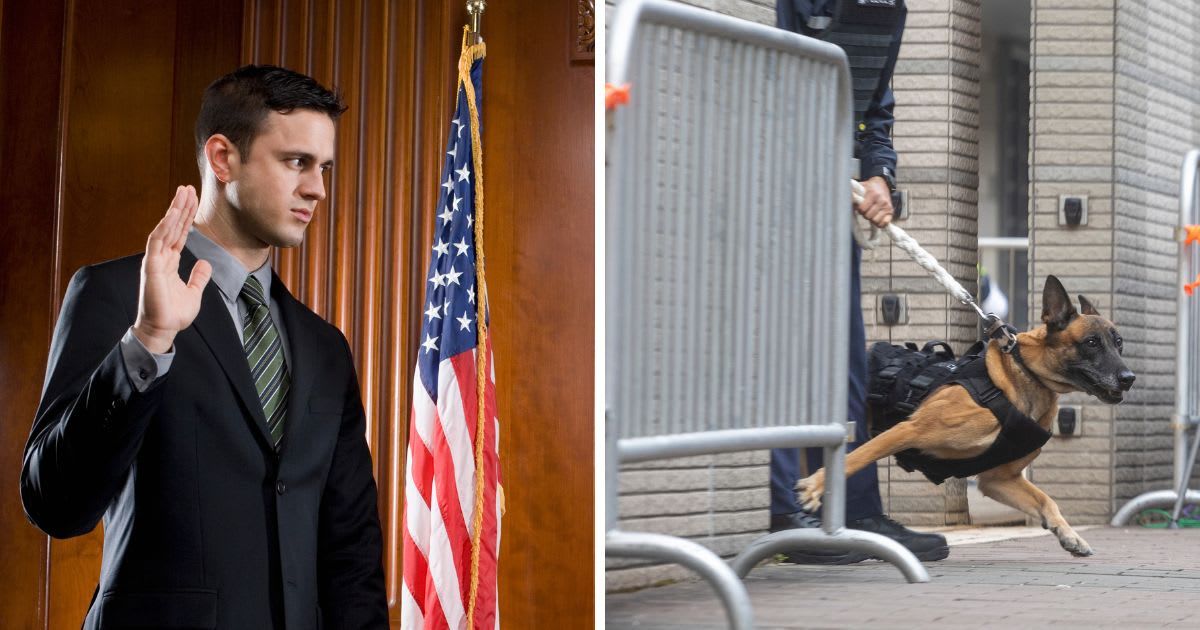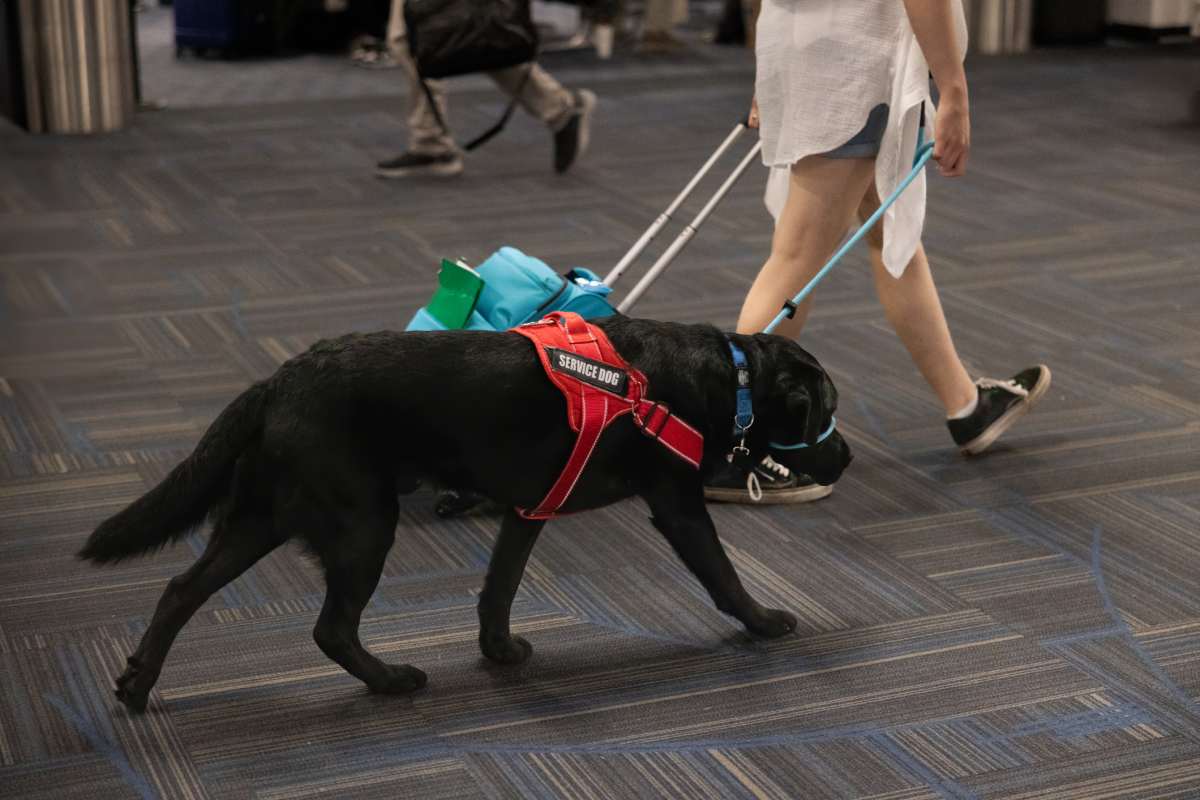Veteran with PTSD stunned as judge orders his service dog out courtroom — yet allows same pet when his wife attends

Service dogs are a lifeline for people with special needs. While some dogs are trained to act in emergency situations, others offer emotional and mental support. A veteran was asked to have his service dog leave a courtroom after the judge was notified of the pet’s presence. Khris Allfrey, who had served in the Army, was a victim of post-traumatic stress disorder and needed his service dog to accompany him everywhere, even in court. However, a judge was not in alignment with his needs and ordered the service dog to be sent out of the courtroom in Alabama during an ongoing trial, as reported by WKRG.

The service dog, Dewey, belonged to Allfrey’s wife, who had previously testified on a different day in the same courtroom. While Dewey was hers, Allfrey served as the trainer. The Mobile federal court had not objected when the dog was present amidst the wife’s testimony. U.S. District Court Judge Terry Moorer was alerted to the dog’s presence while Allfrey was testifying and wanted him removed. Disturbed by the judge’s demand, Allfrey’s attorney stated, “As a service dog in training, a trainer has the right to take him into this facility under the Americans with Disabilities Act.” However, the judge was adamant about the dog’s presence. “It is my courtroom,” Judge Moorer said.

Although Judge Moorer allowed the dog to stay for the day, he did not want Dewey present thereafter. He intended to “find someone else” to take care of the dog during the trial. Allfrey was not impressed by the judge’s decision and wanted a different judge for the ongoing trial, which stemmed from a matter that occurred during the couple’s vacation to the Gulf Coast. “His three primary tasks are he alert her to seizures. He alerts both of us, or gets us out of it, when we get into PTSD episodes, and he attempts to calm us when we have anxiety,” he told the outlet, explaining his service dog's role.

The Americans with Disabilities Act allows service dogs to enter public spaces and areas where dogs may not be allowed, including shopping malls, restaurants, hospitals, and schools, per the official site. “Businesses and non-profits that are open to the public, as well as state/local governments, must allow service animals to go most places where the public can go. This is true even if they have a ‘no pets’ policy,” the site states.
However, on a few occasions, a service animal can be excluded from business or government sites if certain conditions are met. The animal’s removal can be requested if they run around uncontrollably, go to the bathroom indoors, or bark, growl, or threaten the safety of others in the space. In extreme cases, a facility can deny the entrance of a service animal if their presence fundamentally alters goods, services, programs, or activities that are being provided to the public, according to ADA Pacific.